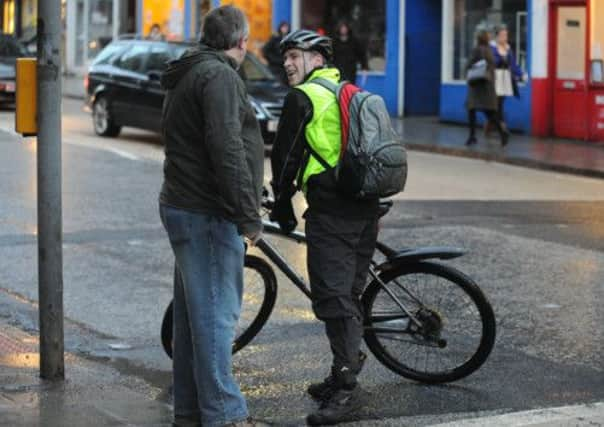Letters: ‘Liability changes will realise cycling dreams’


The principle of innocent until proven guilty underpins Scots criminal law but not civil law. It is civil law we hope to change, where strict liability is already widely used to protect consumers and employees. And although motorists in accidents with cyclists would be presumed liable, they will always be able to attempt to prove the cyclist’s negligence.
Strict liability isn’t about making cyclists invulnerable to consequences from their actions but about giving those who deserve compensation their recompense quickly.
Advertisement
Hide AdAdvertisement
Hide AdNor will this increase tensions between motorists and cyclists. It would actually usher in a greater sense of care and respect on the roads as motorists become more cautious towards cyclists and cyclists towards pedestrians.
We view strict liability as just one part of a range of policies the Scottish Government can and should be pursuing to improve cycle safety. It is also an imperative if we are to catch up with our European neighbours and realise our ambition to become a cycling nation.
Brenda Mitchell, founder, Cycle Law Scotland, Peebles
Fitting tribute to tragic schoolboy
IT was a fitting tribute to seven-year-old Ruaridh McKay, who died in March, when his classmates held a celebration in honour of the schoolboy’s life (News, April 15).
His family were presented with a book of drawings and poems by pupils at the Sacred Heart Primary School in Penicuik.
May God give his parents comfort and daily strength in their sorrow. My prayers and sympathies are with them.
June Fleming, Hercus Loan, Musselburgh
Let parents make call on religion
On Thursday, the Evening News reported that the proposer of a petition to the city council to retain religious observance in city ‘non-denominational’ primary and secondary schools states that he wishes to prevent Christianity being marginalised in schools.
Yet the report also says that the Church of Scotland is in favour of “time for reflection” rather than religious observance “to highlight the inclusive nature of these events”.
The Church thus wishes to reduce its official Christian role to provide space for religious observance, like the Scottish Parliament’s Time for Reflection, for diverse denominations such as evangelicals, Pentecostalists, Mormons, Hindus, Sikhs, Muslims and Buddhists.
Advertisement
Hide AdAdvertisement
Hide AdYes, pupils should learn about these various faiths but they should not be required to participate in their religious services.
Would it not be fairer for there to be a ballot of electors to decide if they wish the council to continue to authorise these arrangements and for parents to take the children to the church of their choice outside of school hours?
Norman Bonney, Palmerston Place, Edinburgh